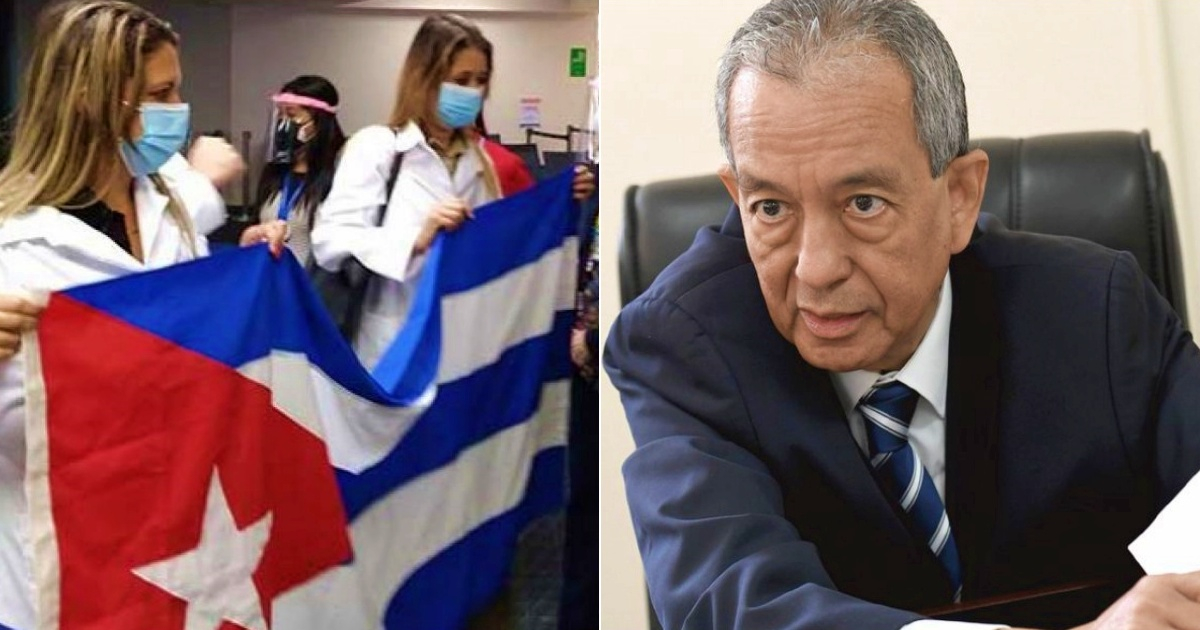
| 25/12/2020 – 11:17 (GMT-4)
The dean of the Faculty of Medicine at the University of Panama, Enrique Mendoza, resigned from the Health Advisory Council (CCS) after the arrival of more than 200 Cuban doctors employed by the government to care for coronavirus patients.
“I have been consistent in my position that foreign nationals who do not comply with the laws of the Republic will not be allowed to practice medicine,” Health Minister Luis Francisco Sucre told Mendoza in a letter to the newspaper. The press.
In recent years, Panama has established legal and academic mechanisms to guarantee the knowledge and skills of health professionals, Mendoza recalled, describing ignorance and the destruction of regulations as “collateral damage” caused by the coronavirus pandemic.
During this year, various educational and governmental institutions in Panama have allowed about 400 inpatients to work in hospitals across the country, and by 2021, more than 300 will begin operations, including general practitioners and residents, in accordance with national laws. , explained the dean of the Faculty. of Medicine of the University of Panama, in the resignation letter addressed to CCS.
The Health Advisory Board was set up in June. as an advisory body to the President of Panama, Laurentino Cortizo, in strategies to continue the fight against COVID-19, according to the presidential website, and consists of experts in the field of medical sciences with distinct careers, in public and in private.
This Friday, more than 200 Cuban doctors arrived in Panama, covered by a bilateral contract, the details and financial amount of which were not disclosed by the governments of Panama and Cuba, except for employment: West Panama, Chiriquí and the capital.
In August, the executive director of the Cuba Archive, María C. Werlau, called on the Panamanian health minister to hire Cuban health workers who emigrated and lived on the island, outside the Castro government and through the nonprofit Doctori Cubanos Libres initiative against COVID-19.
“The direct employment of Cuban professionals, without the mediation of the Cuban state, is a practical and humanitarian solution that will avoid legal repercussions. Your government would avoid being part of a business in which Cuba exploits and subjects medical personnel to serious and systematic violations of rights, mentioned in a letter to María Werlau, executive director of the Cuba Archive.
Medical missions promoted by the Havana government make services more expensive because it is mandatory to hire staff to manage workers, when in reality they are officials whose function is “monitoring and discipline,” Werlau said.
Recently, The main medical union in La Paz rejected the return of Cuban doctors to Bolivia and its position was supported by the Universidad Mayor de San Andrés, the main state center for university studies, which has never accepted the approval of medical degrees from the Latin American School of Medicine (ELAM), based in Havana.
Members of Cuban civil society and some governments, such as the United States, have denounced to the international community the use of doctors by the island’s government to obtain foreign currency and, in turn, use them as exporters of communist ideology.
The Cuban government has denied the allegations, citing the sale of medical services as a solidarity initiative, but various international media outlets have provided details of contracts signed between the parties so that island doctors can offer their services in exchange for salaries. uneven than for UN experts are dealing with a form of “forced labor”.
In October, a Kenyan newspaper revealed this Cuba charges the government of that African country $ 13 million annually for the work of “listening” doctors. They were in Kenya Cuban doctors Assel Herrera and Orlando “Landy” Rodríguez kidnapped, who remain in the hands of a Somali terrorist group since April 2019, demanding a ransom of one and a half million dollars for both doctors.